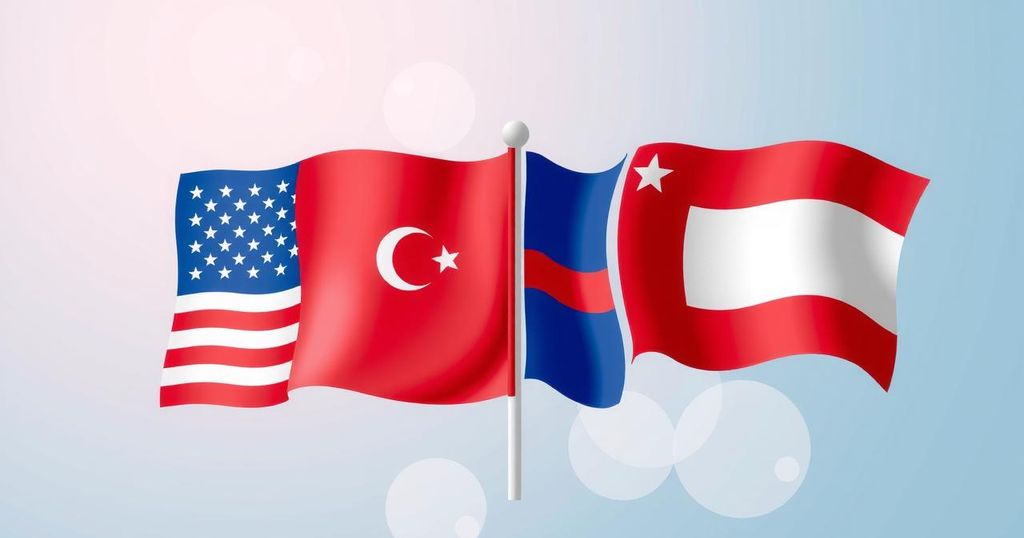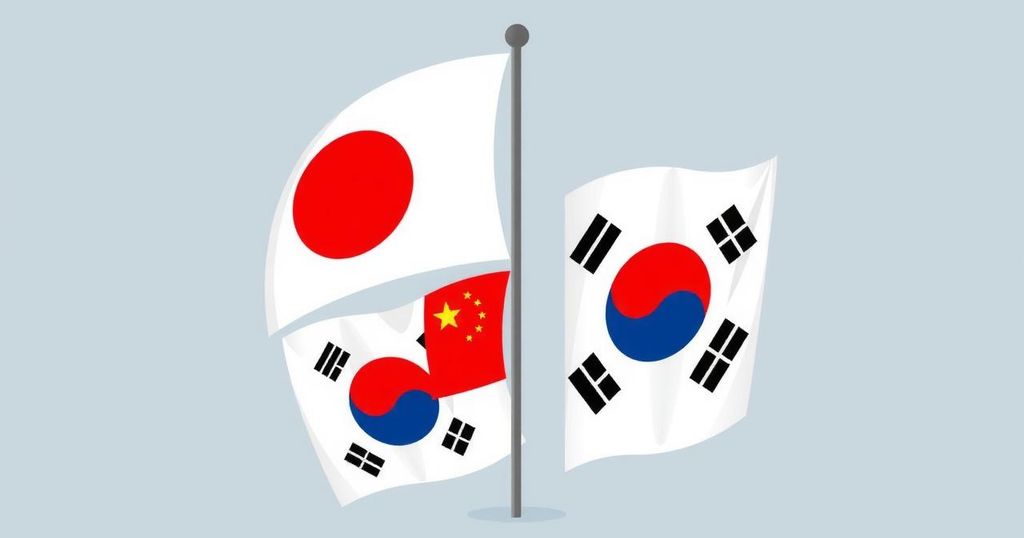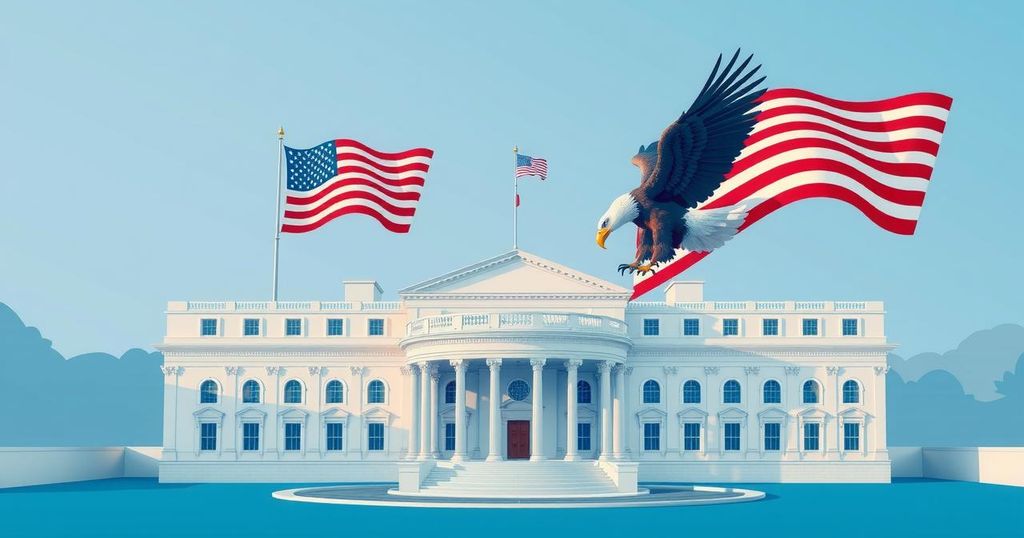Conflicts
Politics
ASIA, CONFLICT, DONALD TRUMP, EU, EUROPE, FOREIGN AFFAIRS, GAZA, GAZA STRIP, HAMAS, HEALTH AND HUMAN SERVICES, HUMAN SERVICES, ISRAEL, JUST SECURITY, KENNEDY, MITCH MCCONNELL, NA, NARENDRA MODI, NATO, NORTH AMERICA, PETE HEGSETH, PUTIN, SENATE, TRUMP, UNITED STATES, US, WAR, WHITE HOUSE
Sophia Klein
Trump’s Tariff Strategy Escalates Amid Trade Conflict and Geopolitical Tensions
Donald Trump’s tariff initiatives are escalating amidst a trade conflict and geopolitical tensions, particularly in relation to NATO members and the situation in Ukraine. The Biden administration’s handling of key policies faces legal scrutiny and potential shifts in foreign relations strategies, with growing concerns over America’s role in global negotiations without key allies involved.
Former President Donald Trump has intensified his tariff strategy as a trade conflict escalates, particularly ahead of Indian Prime Minister Narendra Modi’s upcoming White House visit. Concerns among NATO members grow regarding U.S. positions, especially amid statements from Defense Secretary Pete Hegseth and Trump himself. As the most dominant NATO member by military and political standards, the U.S. has historically been pivotal to European security. However, the EU now contemplates a future without American support, expressing a need for clarity concerning Trump’s agreement with Russian President Vladimir Putin and Ukrainian involvement.
In recent developments, a ceasefire between Hamas and Israel is reportedly regaining momentum, with Hamas planning to release additional captives amidst threats to halt the deal over alleged Israeli violations. Despite this, experts caution that the agreement is fragile, particularly following Trump’s controversial declaration of a desire for the U.S. to assume control over Gaza. Meanwhile, Hamas has initiated calls for worldwide protests against any potential Palestinian displacement.
Kennedy’s nomination as Secretary of Health and Human Services faces scrutiny due to his history of vaccine skepticism and conspiracy promotion, yet he has gained support from the Republican Party, anticipating an easy confirmation. Nonetheless, Republican Senator Mitch McConnell’s vote will be closely monitored due to his own vaccine advocacy background. Legal challenges against the Trump administration have surged, demanding attention to hearings regarding Trump’s proposed changes to USAID and a ban on transgender service members, which critics label discriminatory.
Ukrainian President Volodymyr Zelenskyy has voiced concerns about Trump’s plans following their discussions, emphasizing Ukraine’s necessity in any negotiations over its future. Trump remains steadfast on implementing tariffs on steel and aluminum, leaving allied nations like Japan, Australia, and South Korea seeking exemptions amidst fears about their economic repercussions. Economists suggest the potential for negotiable tariff exemptions exists.
Trump has indicated a “good possibility” for concluding the Ukraine war, yet European officials express alarm over the implications of negotiations that do not include Ukraine. EU foreign policy chief Kaja Kallas stresses that any agreement lacking Ukrainian involvement is doomed to fail, warning such strategies may favor Putin. Trump’s actions in his second term suggest significant geopolitical shifts, raising questions about global trust in U.S. leadership.
Trump employs tariffs as a strategic tool intended to drive broader foreign and domestic policy objectives, similar to his approach with Canada and Mexico that linked tariff threats to border security concessions. Current tariffs appear aligned with overarching goals concerning energy security, suggesting a deeper strategy underlying these economic moves.
Donald Trump’s renewed tariff policies align with rising geopolitical tensions, raising concerns among NATO allies and igniting discussions of U.S. involvement in negotiations concerning Ukraine. The administration faces multiple legal challenges, particularly regarding proposed changes in health and military policy. While moves to intensify U.S. influence in global affairs are evident, many observers remain wary of the implications of negotiations that may exclude critical stakeholders like Ukraine.
Original Source: www.aljazeera.com








Post Comment